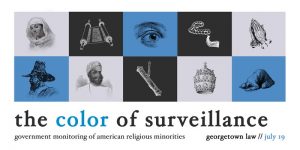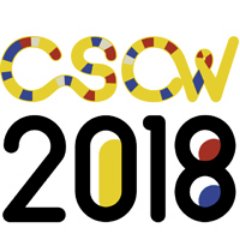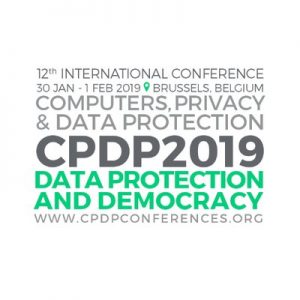Home
Use our global calendar of privacy events to locate an event near you.
FILTER BY

Organizations are trying to better understand how to use legitimate interests as a lawful basis for processing under the GDPR.
Date: May 9, 2018 Time: 10:00 am EDT
Nymity and the FPF (Future of Privacy Forum) released an important study on legitimate interests under the GDPR to wide acclaim: Processing Personal Data on the Basis of Legitimate Interests Under the GDPR. In this webinar, our panelists will discuss specific cases that have been decided at the national level by DPAs and Courts from the European Economic Area (EEA) and the most relevant cases where the Court of Justice of the European Union interpreted and applied the “legitimate interests” ground.
Join us to gain valuable insight concerning over 40 cases examined representing a wide variety of data processing activities from over 15 countries, such as:
- Using key-logger software for employee monitoring
- Use of GPS tracking data for private investigations
- Disclosing health data for litigation purposes
- Disclosing personal data for debt collection purposes
- Sending emails without consent for electoral purposes
- Publishing the sale price of homes that are no longer on the market
- Recording employee misconduct
All of the cases discussed are found in the Nymity Research™ legal compliance software solution which contains over 25,000 References, including English translations of foreign documents.

The GDPR has raised the bar with new requirements on companies to justify their use of EU personal data. And while relying on consent is not the only legal option available, it’s successfully put GDPR at the top of every inbox as consumers have been submerged in emails from companies urging them to “stay in touch” or “not miss out”. Are these emails really necessary? What do I need to include in my privacy notice or consent form? What kind of records do I need if a regulator asks?
With a divergence of opinion, consent management remains a hot topic and has generated a lot of questions and uncertainty.
- The GDPR requirements on determining the legal basis for processing
- The most recent guidance from regulators on seeking consent
- Sample consent forms, legitimate interests assessments and other best practice examples
Can’t make it? Register anyway – we’ll automatically send you an email with both the slides and recording after the webinar!
TrustArcWebinar FAQs: Click here for answers to the most commonly asked webinar related questions.
#trustarcGDPRevents

Across our country’s history – from the surveillance of the Separatists we now know as Pilgrims in 16th and 17th century England, to federal house raids and interrogations of early Mormons in the Utah Territory in the 19th century, to the 20thcentury surveillance of Jewish, Muslim, Quaker, and Sikh communities, to modern post-9/11 surveillance systems –government monitoring has long had a deep and disparate impact on American religious minorities.
The Color of Surveillance: Government Monitoring of American Religious Minorities will trace that history, and ask hard questions about what it means: Is modern surveillance consistent with the intentions of the American founders – or, for that matter, the events that precipitated the migration of English Separatists to the New World on the Mayflower? Do modern counterterrorism initiatives appropriately protect civil rights and civil liberties? How are local communities, advocates, and artists responding to these challenges?
Now in its third year, The Color of Surveillance, organized by the Center on Privacy & Technology at Georgetown Law, convenes academic, policy and government experts alongside local and community activists and artists. Prior speakers have included the Pulitzer-winning biographers of Martin Luther King, Jr. and W.E.B. DuBois, Guggenheim award-winning artists, and the general counsel of the Federal Bureau of Investigation.
Welcome & Introduction to The Color of Surveillance: Government Monitoring of Religious Minorities
8:45 – 9:00am
Dean William Treanor, Georgetown Law
Alvaro Bedoya, Center on Privacy & Technology at Georgetown Law
Elizabeth I to the Early 20th Century
9:00 – 10:15am
“Hunted”: 16th & 17th Century Surveillance of Pilgrims
John Coffey, University of Leicester
Is the United States a Christian Nation?
Brooke Allen, Bennington College
“Mohammedan Barbarism”: The Campaign Against Early Mormons
J. Spencer Fluhman, Brigham Young University
The Military Intelligence Division and American Jews
Alvaro Bedoya, Center on Privacy & Technology at Georgetown Law
The FBI and the Moorish Science Temple of America
Sylvester A. Johnson, Virginia Tech
BREAK
10:15 – 10:30am
The 1960s to the Aftermath of 9/11
10:30 – 12:05pm
J. Edgar Hoover, Black Clergy, and Martin Luther King, Jr.
Lerone A. Martin, PhD, Danforth Center on Religion and Politics at Washington University in St. Louis
The Feeling of Being Watched: A Filmmaker’s Response
Assia Boundaoui, The Inverse Surveillance Project
Rabia Boundaoui
Xiangnong (George) Wang (moderator), Center on Privacy & Technology at Georgetown Law
Post-9/11 Watchlists
Hina Shamsi, ACLU National Security Project
Community Reflections
Members of the Center for Media Justice’s National Delegation of MASA Community Activists
LUNCH BREAK
12:05 – 1:00pm
Life in Affected Communities
1:00 – 2:45pm
A Conversation on Countering Violent Extremism
Faiza Patel, Brennan Center for Justice
Ayaan Dahir, Young Muslim Collective
Eric Rosand, The Prevention Project
William Braniff, START, University of Maryland
Alvaro Bedoya (moderator), Center on Privacy & Technology at Georgetown Law
“Mosque Crawlers” and the Raza and Hassan cases
Asad Dandia, NYU Graduate Student
Farhaj Hassan, Muslims United For Justice
Laura Moy (moderator), Center on Privacy & Technology at Georgetown Law
“If they should come for us”: A Poet’s Response
Fatimah Asghar
Renata Barreto (moderator), Center on Privacy & Technology at Georgetown Law
BREAK
2:45 – 3:00pm
Community Action
3:00 – 5:25pm
Organizing after Raza
Fahd Ahmed, DRUM – Desis Rising Up & Moving
Stopping the Digital Muslim Ban: A Case Study
Rachel Levinson-Waldman, Brennan Center for Justice
Natasha Duarte, Center for Democracy & Technology
Yolanda C. Rondon, American-Arab Anti-Discrimination Committee
Steven Renderos, Center for Media Justice
Harrison Rudolph (moderator), Center on Privacy & Technology at Georgetown Law
Organizing in Silicon Valley
Maya Berry, Arab American Institute
Michelle Miller, Coworker.org
Jameson Spivack (moderator), Center on Privacy & Technology at Georgetown Law
Organizing Locally
Brian Hofer, Oakland Privacy
Religious Surveillance and Intersectionality
Brandi Collins-Dexter, Color Of Change
“Stealth Wear”: An Artist’s Response
Adam Harvey
Closing Remarks
5:25 – 5:30pm
Reception to follow in Hart lobby
Speakers:
- Fahd Ahmed of Desis Rising Up and Moving, a grassroots organizer on the issues of racial profiling, immigrant justice, and police accountability
- Professor Brooke Allen of Bennington College, author of Moral Minority: Our Skeptical Founding Fathers, a New York Times notable book
- Poet Fatimah Asghar, author of If They Come For Us & co-creator of the Emmy-nominated web series Brown Girls
- William Braniff of the National Consortium for the Study of Terrorism and Responses to Terrorism (START), studies CVE and alternative counterterrorism approaches
- Filmmaker Assia Boundaoui, director of The Feeling of Being Watched, a “riveting” account (New York Times) of surveillance of a suburban Muslim community in the 1990s
- Professor John Coffey of the University of Leicester, a scholar of Tudor and Stuart-era surveillance of the Puritans we now know as Pilgrims
- Brandi Collins-Dexter of Color Of Change, a civil rights advocate on media, environmental justice, and economic issues
- Ayaan Dahir of the Minneapolis Young Muslims Collective, a Somali American youth leader and civil liberties advocate
- Asad Dandia, M.A. candidate in Middle Eastern Studies at New York University and plaintiff in the Raza v. NYPD case
- Natasha Duarte of the Center for Democracy & Technology, author of Mixed Messages: The Limits of Automated Social Media Analysis
- Professor Spencer Fluhman of Brigham Young University, author of “An ‘American Mahomet’: Joseph Smith, Mohammad, and the Problem of Prophets in Antebellum America”
- Artist Adam Harvey, creator of Stealth Wear, a clothing collection “inspired by traditional Islamic dress… reimagined in the context of drone warfare”
- Syed Farhaj Hassan, a Sergeant in the U.S. Army Reserve and lead plaintiff in the Hassan v. City of New York case
- Brian Hofer of Oakland Privacy and the Privacy Advisory Commission of the City of Oakland, an advocate for local anti-surveillance legislation
- Professor Sylvester Johnson of Virginia Tech’s Center for the Humanities, co-editor of The FBI and Religion: Faith and National Security before and after 9/11
- Rachel Levinson-Waldman of the Brennan Center for Justice, co-coordinator of the Immigrant Surveillance Working Group
- Professor Lerone Martin of the John C. Danforth Center on Religion and Politics, a scholar on the FBI’s mobilization of African American clergy to discredit Dr. Martin Luther King, Jr.
- Michelle Miller of coworker.org, leading facilitator of tech sector employee activism and mobilization
- Faiza Patel of the Brennan Center for Justice, author of an in-depth critique of federal CVE programs
- Steven Renderos of the Center for Media Justice, co-organizer of a grassroots petition to IBM opposing the company’s interest in ICE’s “Digital Muslim Ban”
- Yolanda Rondon of the American-Arab Anti-Discrimination Committee, a civil rights attorney critical of DHS surveillance initiatives
- Eric Rosand of the Prevention Project: Organizing Against Violent Extremism, a non-resident Senior Fellow at Brookings, and a former State Department senior CVE official
- Hina Shamsi of the American Civil Liberties Union, which is challenging watchlists as unfair and discriminatory

This site contains information related to the 2018 workshop on networked privacy. This year’s workshop, being held at CSCW in Jersey City on November 3rd, is titled, “Privacy in Context: Critically Engaging with Theory to Guide Privacy Research and Design.”
Privacy has been a key research theme in the CSCW and HCI communities, but the term is often used in an ad hoc and fragmented way. This is likely due to the fact that privacy is a complex and multi-faceted concept. This one-day workshop will facilitate discourse around key privacy theories and frameworks that can inform privacy research with the goal of producing guidelines for privacy researchers on how and when to incorporate which theories into various aspects of their empirical privacy research. This will lay the groundwork to move the privacy field forward. To inspire participants and spark discussion, we will have a special keynote speaker, Dr. Helen Nissenbaum, engage with the audience about her renowned Contextual Integrity framework. Dr. Nissenbaum is a Professor of Information Science at Cornell Tech and her framework focuses on understanding privacy expectations and their implications.
Important Dates
- Submission Deadline: August 31, 2018 (Late submissions will be accepted through September 24th, 2018)
- Submission Notifications: September 9, 2018
- Camera-ready Deadline: September 28, 2018
- Date of Workshop: November 3, 2018
How to Participate
We seek participants from various domains for a multidisciplinary workshop to
share their knowledge and views of both the theory and design of privacy. Submission format is as follows:
- Position Paper: A 2 to 4 page position paper in CHI extended abstracts format that address the workshop themes and highlighted topics provided in the call. (References not included in page limit).
Papers will be peer-reviewed, and submissions will be accepted based on the relevance and development of their chosen topic, as well as their potential to contribute to the workshop discussions and goals. Topics of interest include, but are not limited to:
- Identification of relevant privacy theories
- Empirical studies that incorporate privacy theories
- Methodological considerations for incorporating privacy theories into empirical research
- Implementing privacy theories in collaborative systems’ design
How To Submit
- Position papers should be sent to [email protected] before or on August 31, 2018 11:59 PM Pacific Standard Time.
Submissions will be peer-reviewed by the workshop’s program committee. Acceptance decisions will be sent out by September 9, 2018 and camera-ready versions due at the end of September and will be made available on the workshop website.
NOTE: At least one author of each accepted position paper must attend the workshop and all participants must register for both the workshop and for at least one day of the conference.
Contact
Final submissions and questions about the workshop should be sent to [email protected].
The California Consumer Privacy Act (CCPA): An Introduction by its Author and Leading Technologists
In this webinar, you will learn:
- What the key provisions of the law mean to you and your customers:
- “Right to Know”
- “Right to Say No”
- “Right to Have Data Kept Safe”
- How existing and forthcoming technologies make it possible to achieve the intent of the CCPA
- How to build a data privacy culture within your enterprise
Hosted by:
Alastair Mactaggart, Chairman, Californians for Consumer Privacy
Justin Antonipillai, Privacy Expert & CEO, WireWheel
John Ackerly, Security Expert & CEO, Virtru
Jocelyn Aqua, Principal, Regulatory Privacy & Cybersecurity, PwC
Webinar Summary:
- In celebration of Data Privacy Day, “an international effort to empower individuals and businesses to respect privacy, safeguard data and enable trust,” please join us in a webinar where we will discuss the California Consumer Privacy Act (CCPA), a landmark piece of legislation designed to increase consumer rights over personal information, establish that privacy is a human right, and set the minimum bar for national privacy regulations.
- This will be the first in a series of webinars to help educate consumers and businesses about the CCPA, how to get ready for it, and to understand that the CCPA will ultimately protect a fundamental human right, while still enabling and promoting innovation and the growth of small and medium-sized businesses and large enterprises.
- The CCPA is set to go into effect on January 1, 2020 and will help people regain ownership and control over their personal information while helping businesses establish trust by ensuring they safeguard people’s personal information.
- Alastair Mactaggart, the Californians for Consumer Privacy Chairman and a force behind the CCPA, along with Justin Antonipillai, the founder and CEO of WireWheel, and John Ackerly, the founder and CEO of Virtru, will discuss the key sections of the CCPA and how technologies, like those developed by WireWheel and Virtru, are making it possible for the CCPA to fully achieve its vision and goals.
FPF’s monthly Privacy Landscape call is scheduled for next Tuesday, Feb. 19, 2019 from 4pm-5pm ET.
The call will focus on state privacy legislation, with particular attention paid to the California Consumer Privacy Act and Senator Carlyle’s consumer privacy bill in Washington State. We expect a robust discussion and will set aside plenty of time for Q&A.
We are fortunate to be joined by Jim Halpert, Co-Chair of DLA Piper’s Global Data Protection, Privacy and Security Practice and Alex Alben, Washington State’s Chief Privacy Officer. Jim is a trusted voice in innumerable state privacy discussions. Alex has deep insight into the ongoing process re: the proposed Washington Privacy Act, including the just-published substitute bill.
Resources:
California Consumer Privacy Act – https://leginfo.legislature.ca.gov/faces/billTextClient.xhtml?bill_id=201720180AB375&search_keywords=California+Consumer+Privacy+Act+of+2018
Washington State consumer privacy bill – http://lawfilesext.leg.wa.gov/biennium/2019-20/Pdf/Bills/Senate%20Bills/5376.pdf
Dial-in info for US callers and commonly requested international numbers are below. If you need an additional country-specific dial-in, please let me know.
We look forward to hearing from everyone – it promises to be a great call!
Dial-in info:
US Dial-In: 1 (888) 545-0687
Passcode: 5784 622#
Belgium: 0800 389 15
France: 0805 102 857
Germany: 0800 222 2013
Ireland: 1800 936 220
Israel: 1809 212 583
Italy: 800 906 150
Netherlands: 0800 0200 273
Poland 0 0800 121 34 45
UK: 0808 238 9856




